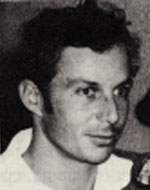Eli, son of Klara and Yosef, was born on December 6, 1943. In Tel Aviv, his family moved to the Yavneh group, where he completed his elementary studies and later his high school studies. But only in the 11th grade he became active in the society and began taking the studies seriously, and succeeded in them. Eli joined the IDF in the middle of July 1962 after completing his matriculation exams, and served in the Nahal paramilitary brigade. After completing his military service, Eli volunteered for a year of service under permanent conditions and moved to command of the Nachal-Shikma settlement, then the Modi’in outpost. That same year he married his classmate and in possession of their first year of marriage. After completing his regular service, he returned to his group. At first he worked in the banana plantation and then received the concentration of the mixed farm institute, which was old, undeveloped and primitive. When he took up his post, the agriculture built a sophisticated institute and thus converted, for example, the distribution of the mixture using an old tractor and cart, to be distributed by truck, through pneumatic pipes. But the transition to the new and sophisticated institute was clouded with a kind of cloud – a farewell from a veteran and dedicated worker who had accompanied the old mixed-market institute for fifteen years and could not find its place in the new institute. Ali’s concern for finding a suitable job for the devoted worker was boundless. He was not restless until he found a job that satisfied him. Ali loved the new institute, enjoying the upgrades and automation and the possibility of operating systems from the command board. But felt immediately that the next stage of acquiring basic knowledge must come; So he went to a food-technician course at Midreshet Ruppin, where he completed his studies as a chemist technician. As part of his social activities, he was a member of various committees, including the Culture Committee, which dealt with directing young people returning from military service. He was a member of the internal journal system of the agriculture and occasionally expressed himself in the journal. In addition, a number of poems he wrote were found in his estate. Shortly before his fall he completed his term as secretary of the agriculture. Ali was called for periods of reserve duty, during which he served as commander of a mortar battery, after undergoing prior professional training. When the Yom Kippur War broke out he was stationed with his unit on the southern front. After passing the braking battles and then preparing for a counterattack, he moved with his unit to the Suez Canal. On the 26th of Tishrei 5734 (26.10.1973), in battle to destroy the last Egyptian resistance forces on the outskirts of the city of Suez, Ali fell in battle, bravely and courageously leading his soldiers, he was laid to rest in the cemetery in Kvutzat Yavneh, In a letter of condolences to the bereaved family, his commander wrote: “Lieutenant Ali Hartom z” l was unique, unique in his talents, his gentleness, his peace of mind, which he had imparted to those around him, his willingness to help others and his wisdom and understanding , His courage and heroism, all these, and other lofty qualities, made him unique to all, and his fall was very difficult for us. “In the name of the soldiers of the entire battalion, who loved him so much and admired him, I express our deep sorrow and our participation in your mourning, which is also our father …”. Ali’s family and kibbutz published a booklet in his memory, including his words and friends’ talk about his character.
